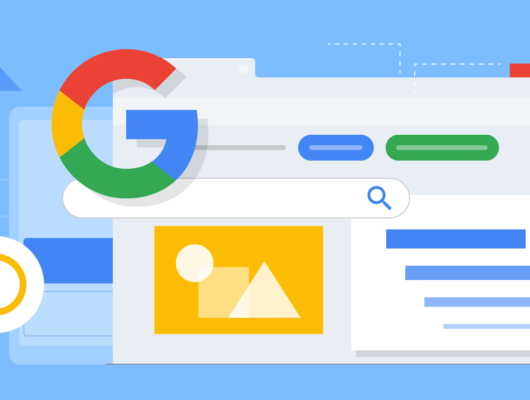Search Engine Optimization (SEO) can seem overwhelming for beginners, but with the right tools, it becomes much more manageable.
Whether you’re just starting your website or looking to improve your existing content, there are plenty of user-friendly SEO tools that can help you rank higher on search engines.
In this guide, we’ll introduce some of the best beginner-friendly SEO tools to get you started.
1. Google Search Console
Best for: Website Monitoring and Performance Tracking
Google Search Console is an essential free tool for any beginner. It helps you understand how Google views your website and gives you insights into your search performance.
- Key Features:
- Monitor keyword rankings and clicks.
- Identify indexing issues and fix them.
- Submit your sitemap for better crawling.
- Track mobile usability and site errors.
Why Use It: It’s a great starting point for understanding how your website is performing in Google search results, and it’s easy to use for beginners.
2. Google Analytics
Best for: Website Traffic Analysis
Google Analytics is another free tool from Google that tracks user activity on your website. Understanding how visitors interact with your site can help you optimize your content for better engagement and SEO.
- Key Features:
- Track traffic sources (organic, direct, referral).
- Analyze visitor behavior on individual pages.
- Monitor conversion rates and user demographics.
- Measure session duration and bounce rates.
Why Use It: It’s a powerful tool for gaining insights into your audience and fine-tuning your website to meet their needs.
3. Yoast SEO (WordPress Plugin)
Best for: On-Page SEO Optimization
If you’re using WordPress, Yoast SEO is a must-have plugin. It simplifies the process of optimizing your content for search engines, making it easy to handle on-page SEO even if you’re a complete beginner.
- Key Features:
- Optimize titles and meta descriptions.
- Analyze content for keyword usage.
- Create XML sitemaps automatically.
- Preview how your content will appear in search results.
Why Use It: Yoast provides a beginner-friendly interface that guides you through the optimization process step by step.
4. Ubersuggest
Best for: Keyword Research
Ubersuggest, created by SEO expert Neil Patel, is one of the best keyword research tools for beginners. It offers an intuitive interface for finding keywords that can help you rank higher on search engines.
- Key Features:
- Find new keyword ideas.
- View keyword difficulty and search volume.
- Analyze competitor websites and their top-ranking keywords.
- Get backlink suggestions for improving domain authority.
Why Use It: Ubersuggest provides a wealth of keyword information in a simplified format, making it ideal for those new to SEO.
5. AnswerThePublic
Best for: Content Ideas and Keyword Inspiration
AnswerThePublic is a unique tool that helps you generate content ideas by providing commonly asked questions around a keyword. It’s great for finding long-tail keywords and understanding the search intent of your audience.
- Key Features:
- Generate a list of questions and phrases based on a keyword.
- Visualize keyword suggestions in a mind-map format.
- Explore new content ideas around your niche.
Why Use It: It helps beginners tap into the questions that potential customers are asking, making it easier to create content that ranks.
6. SEMrush
Best for: Comprehensive SEO Insights
SEMrush is a more advanced tool, but it has beginner-friendly features that make it accessible to newcomers. It offers a complete suite for keyword research, competitor analysis, and SEO audits.
- Key Features:
- Perform in-depth keyword research.
- Analyze competitor SEO strategies.
- Conduct on-page and technical SEO audits.
- Monitor website rankings and backlinks.
Why Use It: SEMrush is an all-in-one platform that grows with you as your SEO knowledge expands, making it a great investment for long-term success.
7. Moz Keyword Explorer
Best for: Easy-to-Use Keyword Research
Moz Keyword Explorer is a simple and effective tool for keyword research. It’s designed for beginners who need a clear understanding of keyword performance and ranking potential.
- Key Features:
- Discover new keyword suggestions.
- Check keyword difficulty and potential ranking.
- View organic CTR (click-through rate) for search terms.
- Analyze SERP features for targeted keywords.
Why Use It: Moz provides easy-to-understand metrics and a clean interface, making it an excellent choice for those just starting out.
8. Screaming Frog SEO Spider
Best for: Website Auditing and Crawling
Screaming Frog is a tool designed to crawl websites and identify SEO issues like broken links, duplicate content, and missing metadata. While it might seem technical at first, it’s an essential tool for auditing your site’s SEO health.
- Key Features:
- Find broken links (404 errors) and redirects.
- Analyze metadata and duplicate content.
- Check for missing alt text on images.
- Create XML sitemaps for better indexing.
Why Use It: For beginners, it’s a great way to conduct a detailed audit of your site and find quick fixes that can improve SEO.
9. Keywords Everywhere (Browser Extension)
Best for: Quick Keyword Research on the Go
Keywords Everywhere is a browser extension that gives you instant keyword data as you browse the web. It’s a simple, lightweight tool perfect for beginners who want quick insights into search volume and competition.
- Key Features:
- View search volume and CPC (Cost-Per-Click) data for keywords.
- Analyze competition levels for specific terms.
- Get keyword suggestions while browsing Google, YouTube, and other search engines.
Why Use It: It’s one of the easiest ways to perform keyword research without leaving your browser.
Conclusion
For beginners, getting started with SEO can feel daunting, but these tools make it easier to understand and implement SEO strategies.
From keyword research and competitor analysis to site audits and performance tracking, these beginner-friendly tools provide everything you need to optimize your website and start climbing the search engine ranks.
Take the time to explore and master these tools, and soon you’ll see significant improvements in your website’s visibility and traffic.






